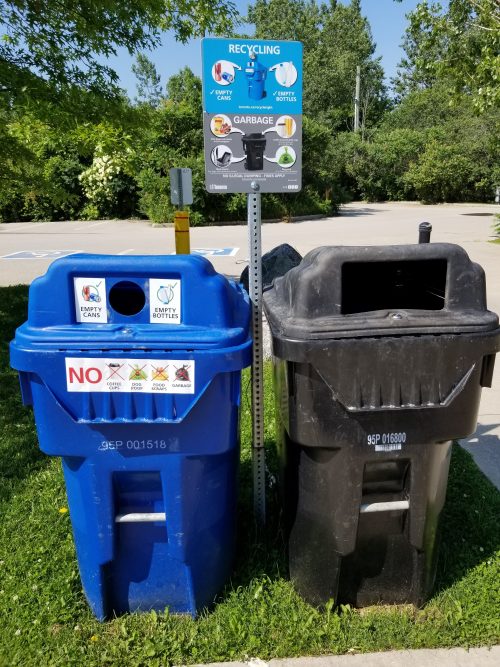
Find out what is and isn’t accepted in the City’s recycling program below. When in doubt about how to properly dispose of something, ask the Waste Wizard.
Recycling helps to conserve natural resources, keep waste out of landfill and reduce energy use and greenhouse gas emissions. It’s important to recycle right.
Learn about upcoming changes to the Blue Bin (Recycling) Program.
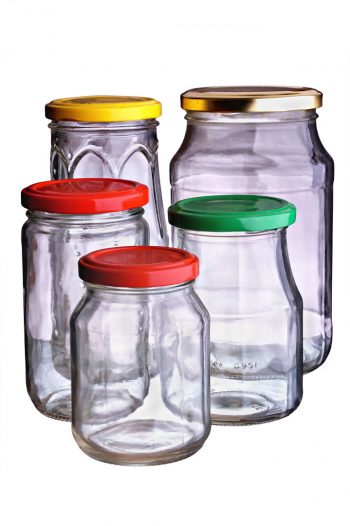
Note: all black and/or compostable plastic goes in the garbage.
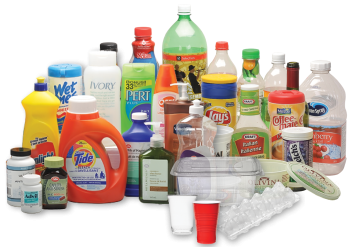
Note: remove product before recycling.
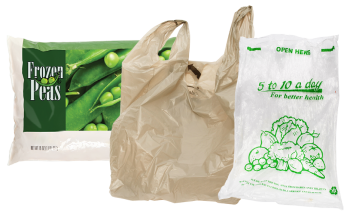
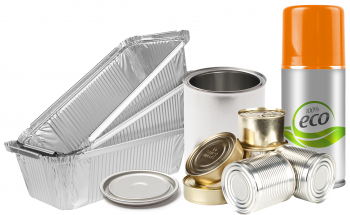
*Place pieces smaller than a business card in envelope or add to bag of shredded paper.
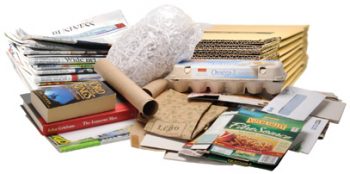
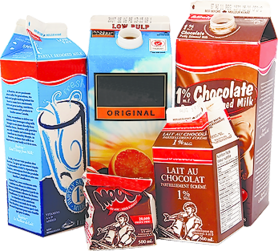
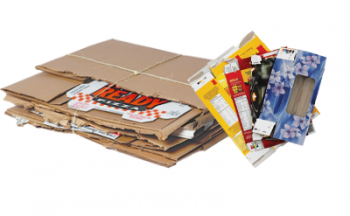
Note: Food/drink packaging must be empty and rinsed (otherwise, place in garbage). Black foam items and pieces smaller than 10 cm (4″) x 10 cm (4″) go in the garbage).
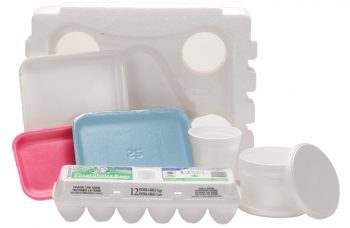

Food scraps like apple cores, eggshells or expired leftovers belong in your Green Bin. When you mistakenly toss food scraps in your Blue Bin, food residue and particles get soaked up by paper and can ruin large batches of otherwise good recyclables.
Please empty and rinse food containers before tossing them in your Blue Bin. When you don’t, the residue from items like jars and take-out containers gets soaked up by paper and can ruin large batches of otherwise good recyclables. Put any food scraps in your Green Bin.
Old clothes, shoes, blankets, and curtains don’t belong in the Blue Bin. They can get caught in sorting machines, damage equipment and cause workplace injuries at the recycling facility. Instead, donate items that are in good condition to not-for-profit agencies or drop them off for reuse at Community Environment Days. If your items can’t be donated, put them in the garbage.
Black plastic of any kind, such as take-out containers and black garbage bags, is not accepted in the City’s recycling program. There are two main reasons for this:
Please dispose of all black plastic in the garbage.
These do not go in your Blue Bin. They can get tangled in sorting machines, damage equipment and cause workplace injuries at the recycling facility. Donate unwanted VHS tapes or see if your local electronics store’s has a recycling program. Throw unwanted cords, hoses and cables in your garbage.
The City does not accept coffee pods in its Blue Bin recycling program, as coffee grounds are often left within them, which can ruin other items in the bin, such as paper and cardboard, making them no longer recyclable. All coffee pods, including those that are labelled or marketed as recyclable, must be disposed of in the garbage or returned to retailers/manufacturers who have take-back programs.
The City commissioned research related to disposal of single-serve coffee and tea pods. The findings include feedback from Toronto residents about use, attitudes and disposal behaviours.
The City does not accept the following items marketed or labelled as compostable or biodegradable in its Blue Bin recycling program:
These items, which may be made of or lined with a bio-based plastic, must be disposed of in the garbage. Alternatively, products can be returned to retailers/manufacturers who have take-back programs.
Compostable and biodegradable plastics are not recyclable, as they are made of materials that are meant to break down versus materials that can be made into something new. Once recyclables are collected and sorted, they are baled and sold to partially offset the cost of collecting and separating recycling. At the recycling facility, compostable and biodegradable plastics get mixed with conventional plastics. When this happens, it lowers the quality of the plastic bales making them less valuable and more difficult to sell.
While the City works to divert as much waste as possible from landfill, the material in public recycling bins is often heavily contaminated with non-recyclable items, such as containers with food and liquid in them, black plastic and pet waste. When this happens, much of the recycling is ruined, sending it to landfill.
In spring 2021, the City of Toronto installed new lids on 300 recycling bins in parks across the city. The new bin lids have a hole designed to exclusively capture empty beverage cans and bottles. Stickers adhered to the bins and signage beside the bins indicate what items are accepted and not accepted in the recycling bins.
Data collected from the beverage bin pilot determined that dedicated bins for bottles and cans can contribute to a long-term strategy to reduce contamination and increase the amount of recycling collected from park bins. The volume of recyclable materials found in beverage bins was highest at sports fields.
In spring 2023, the City installed beverage bins at premium sports fields across Toronto. The goal of installing bins at sports fields is to increase the amount of material the City can recycle from areas that generate the most beverage cans and bottles.
.
